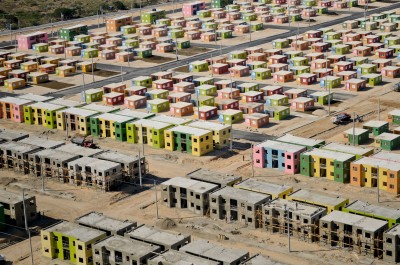Canada’s Corrupt Corporations: World Bank’s Corrupt Companies Blacklist, Dominated By Canada

This article was originally published on Global Research on January 2015. It is of particular relevance to the ongoing SNC-Lavalin scandal which implicates the Trudeau government.
***
Canada has the dubious honour of being home to the largest number of firms on a World Bank blacklist of corrupt companies.
But virtually all of that can be attributed to one Canadian company — SNC Lavalin, the construction and engineering giant whose name is becoming a paragon of Canadian corruption.
Of the more than 600 companies now listed as barred from doing business with the World Bank over corruption, 117 are Canadian, the most of any one country. And of those, 115 represent SNC-Lavalin and its subsidiaries, the Financial Post reports.
Among the listed SNC subsidiaries are Candu Energy, which designs CANDU nuclear reactors, and Evergreen Rapid Transit Holdings, the SNC-Lavalin company established to build Vancouver’s new Sky Train line.
The World Bank’s head of corruption investigations, James David Fielder, told the paper the SNC subsidiaries’ inclusion was due to “a World Bank investigation relating to the Padma Bridge project in Bangladesh where World Bank investigators closely cooperated with the Royal Canadian Mounted Police in an effort to promote collective action against corruption.”
As if on cue, the RCMP on Wednesday announced charges against former SNC executive Kevin Wallace, in conjunction with the probe into the Padma Bridge project.
Wallace was charged with bribery of a foreign official under the Corruption of Foreign Public Officials Act.
“In some countries, bribes are still accepted as a necessary part of doing business. However, bribery raises serious moral and political concerns, undermines good governance and sustainable economic development, and distorts the conditions of international competition,” the RCMP said in a statement.
The World Bank is in the midst of a crackdown on corrupt companies. It expanded its list by some 250 names in the first seven months of this year alone, the South China Morning Post reports.
“We’re not a global policeman, but what we can do is facilitate the global conversation against corruption,” Stephen Zimmerman, director of operations at the bank’s integrity division, told the Financial Times.
After Canada’s 117 listed companies, the U.S. is in second place, with 46 listed. That’s followed by Indonesia (43 firms) and Britain (40 firms).
Bangladesh is not the only place where SNC-Lavalin is alleged to have engaged in bribery.
The company’s former CEO, Pierre Duhaime, was arrested last year on corruption charges related to $56 million in “questionable payments” believed linked to some of the company’s overseas operations. Duhaime was arrested again earlier this year in connection with allegations of corruption surrounding a contract to build a new facility for the McGill University Health Centre (MUHC) in Montreal.
SNC-Lavalin’s links to the former Gadhafi regime in Libya are said to have been so close that the company offered one of the dictator’s sons a vice-president position in 2008, according to news reports.
SNC-Lavalin is also alleged to have been engaged in corrupt practices in Algeria.

